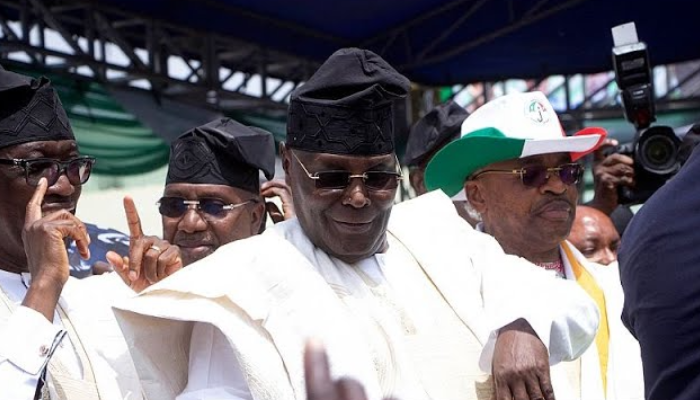
Nigeria’s former Vice President and seasoned opposition figure, Atiku Abubakar, has officially resigned from the People’s Democratic Party (PDP), signaling a dramatic shift in the nation’s political landscape ahead of the 2027 elections.
In a formally worded letter to the PDP leadership, Atiku cited a deepening disconnect between the party’s current trajectory and the principles upon which it was founded. “With a heavy heart, I resign, acknowledging the irreconcilable differences that have arisen,” he wrote.
Atiku, who served two terms as Nigeria’s vice president from 1999 to 2007, and stood as PDP’s presidential candidate in 2019 and 2023, thanked the party for the opportunities it had given him. His departure comes at a time when internal discord and waning influence have plagued the PDP, once Nigeria’s dominant political force with 16 consecutive years in power.
Formation of a New Opposition Coalition
In a strategic move, Atiku has aligned with other prominent opposition figures, including Peter Obi, the Labour Party’s 2023 candidate, and Nasir El-Rufai, former governor of Kaduna State. Together, they have launched a new political platform—the Africa Democratic Congress (ADC)—aimed at mounting a serious challenge to President Bola Tinubu’s ruling All Progressives Congress (APC) in 2027.
This new coalition is a broad-based alliance featuring disillusioned members from both the ruling and opposition parties, including former governors, senators, and influential lawmakers. Their united front mirrors the 2015 coalition that ended the PDP’s 16-year reign.
A Turning Point in Nigerian Politics
Analysts say the emergence of this coalition could significantly reshape the Nigerian political narrative. With Atiku and Obi drawing on their massive grassroots support and El-Rufai bringing Northern political weight, the ADC has the potential to become a formidable electoral force.
The coalition’s leaders have pledged to focus on national unity, economic reforms, security, and transparent governance. They aim to inspire hope among Nigerians weary of ongoing economic hardship and political instability.
As preparations for the 2027 general elections begin, all eyes are on this newly formed alliance and its promise to deliver a new vision for Nigeria’s future.

